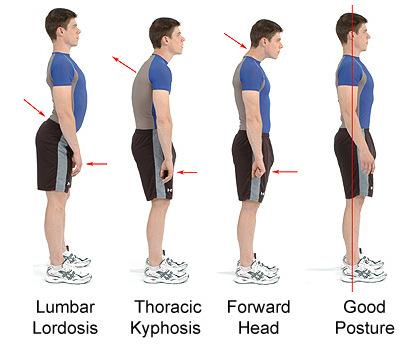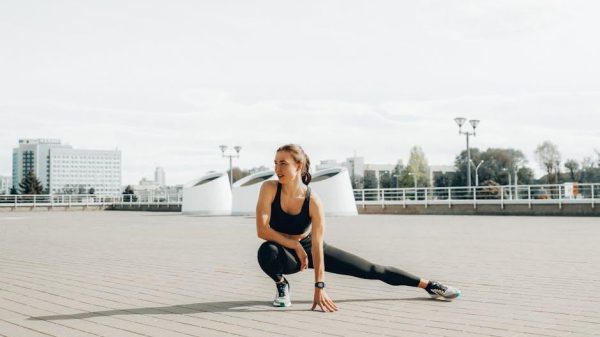Surfing is a thrilling dance with the ocean, where every wave presents a new opportunity for adventure and exhilaration. However, amidst the excitement, it’s crucial to remember that this dynamic sport demands a harmonious blend of skill, strength, and awareness to keep injuries at bay. Shoulder injuries, in particular, are a common concern for surfers, as the repetitive motion of paddling can place significant strain on these vital joints. Fortunately, with the right techniques and preventative measures, you can ride the waves with confidence and keep your shoulders strong and injury-free. In this article, we will explore effective strategies to protect your shoulders while paddling, ensuring that your surfing experience remains as enjoyable and sustainable as possible. Embrace these tips and get ready to paddle out with renewed vigor and peace of mind.
Understanding Shoulder Mechanics to Enhance Surfing Performance
To elevate your surfing game while keeping your shoulders injury-free, it’s crucial to grasp the nuances of shoulder mechanics. When paddling for waves, focus on maintaining a fluid, circular motion. This not only enhances your paddling efficiency but also reduces strain on your rotator cuff. Proper form and technique are key:
- Engage your core: Your core muscles should support your paddling to prevent overloading your shoulders.
- Keep elbows slightly bent: Avoid locking your elbows, which can lead to excessive tension and potential injuries.
- Use a full range of motion: Extend your arm fully into the water and pull through the stroke, engaging the larger back muscles.
Incorporate exercises that enhance shoulder stability and flexibility into your routine. Practices like yoga and resistance training can help in building resilience and balance in the shoulder girdle, further protecting you against injuries. Remember, a well-prepared body is your best ally in conquering the waves!

Strengthening Exercises for Resilient Shoulders
Building resilient shoulders is essential for surfers who want to avoid injuries while paddling for waves. Incorporate these targeted exercises into your routine to enhance shoulder strength and stability:
- External Rotations: Using a resistance band, keep your elbow at a 90-degree angle and rotate your forearm outward. This exercise targets the rotator cuff muscles, crucial for shoulder stability.
- Scapular Push-Ups: In a plank position, keep your arms straight and squeeze your shoulder blades together, then push them apart. This movement strengthens the muscles around the shoulder blades, promoting better control.
- Overhead Press: With dumbbells in hand, press your arms upward while keeping your core engaged. This builds shoulder endurance and power, essential for effective paddling.
Integrating these exercises into your training will not only enhance your paddling performance but also fortify your shoulders against potential strains and injuries.

Mastering Paddling Techniques for Injury Prevention
Developing a strong paddling technique is crucial for maintaining shoulder health and enjoying surfing without setbacks. Focus on maintaining a proper paddling posture: keep your back straight and your head up, allowing for a natural alignment of your spine. This posture reduces unnecessary strain on the shoulders and enhances your paddling efficiency. Additionally, engage your core muscles to stabilize your body, distributing the workload evenly across your upper body and minimizing stress on any single area.
Incorporate these tips into your paddling routine:
- Warm up thoroughly before hitting the waves to increase blood flow and flexibility.
- Use a long, smooth stroke that begins with your hand entering the water near the nose of your board, pulling back in a straight line along the board’s rail.
- Keep your elbows slightly bent to absorb shock and reduce joint stress.
- Develop a rhythmic breathing pattern to maintain a relaxed and efficient paddling pace.
Consistent practice of these techniques not only aids in preventing shoulder injuries but also enhances your overall surfing experience, allowing you to catch more waves with ease and confidence.

Incorporating Warm-Up Routines for Safe Surf Sessions
Before hitting the waves, it’s essential to engage in a comprehensive warm-up routine that prepares your shoulders for the demanding activity of paddling. Warming up not only enhances performance but also significantly reduces the risk of injuries. Here’s how you can get started:
- Dynamic Stretches: Incorporate dynamic movements like arm circles and shoulder rolls. These exercises increase blood flow and improve flexibility, making your muscles more pliable and ready for action.
- Resistance Band Exercises: Use resistance bands to perform internal and external shoulder rotations. This strengthens the rotator cuff muscles, which are crucial for stabilizing your shoulders during paddling.
- Yoga Poses: Integrate yoga poses such as the Downward Dog and Cat-Cow stretch to enhance shoulder mobility and flexibility, promoting a greater range of motion.
By dedicating just a few minutes to these warm-up activities, you’ll not only safeguard your shoulders but also boost your surfing experience, making each session more enjoyable and injury-free.










